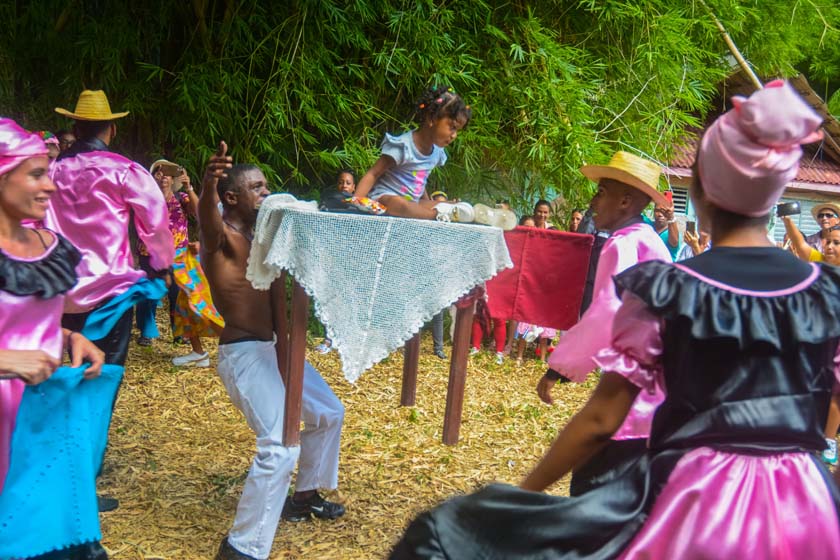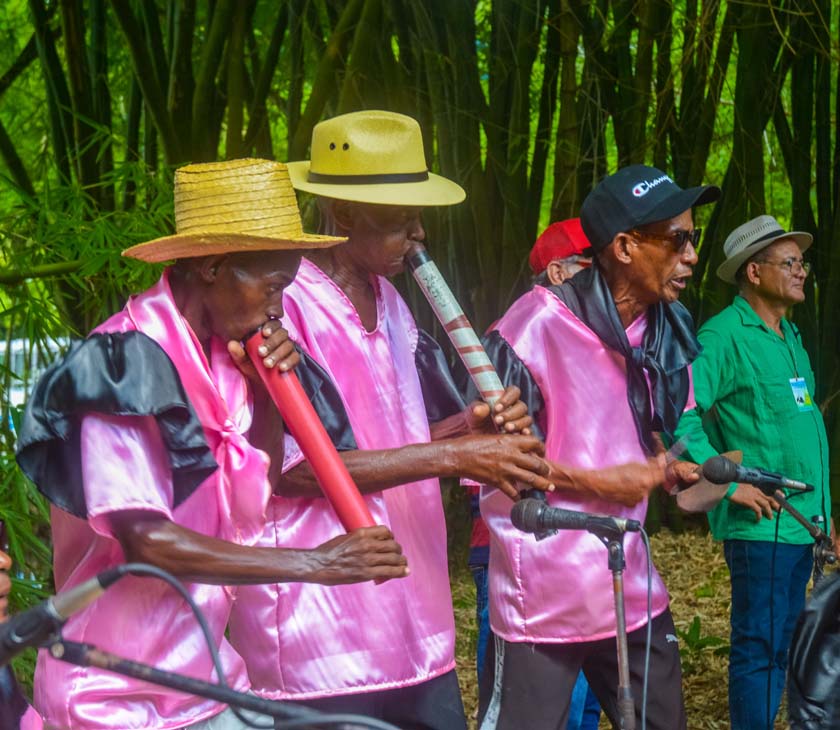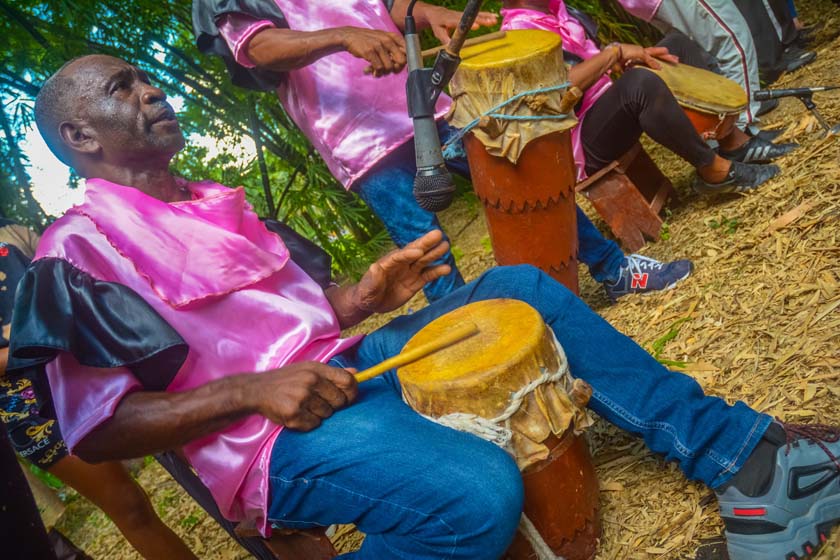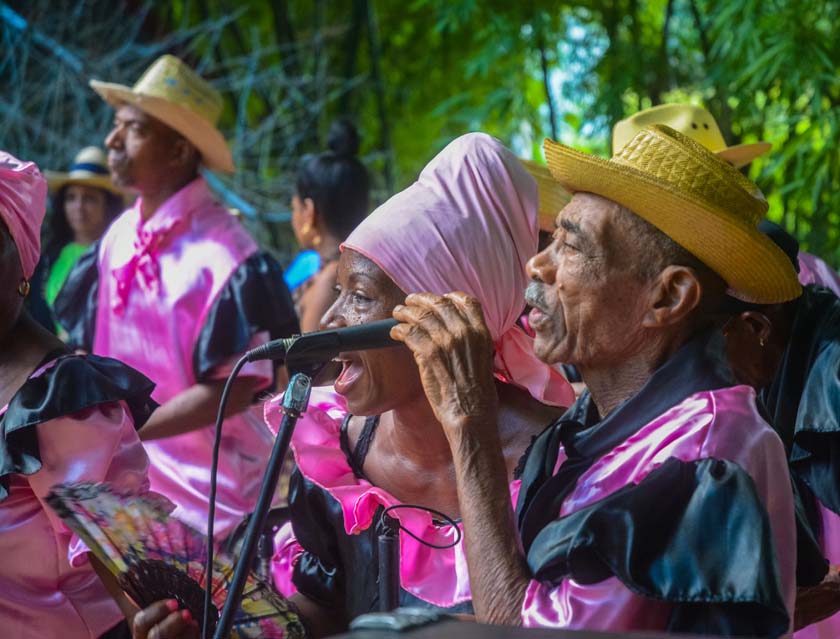
Among drums, dances, and contagious sounds, Haitian culture, proudly represented by the emblematic group Petit Dancé, also took over the celebrations at the El Cornito farm during the last galas of the recent Cucalambeana Fiesta.
Las Tunas, Cuba.- Through dances allegorical to work, religion, and family, the group captivated the visitors who gathered in the country hut of the natural site, which served as a special inspiration to the bard Juan Cristóbal Nápoles Fajardo (El Cucalambé), with the versatility and majesty of its traditions.
The ancestral ceremony is part of the practices of Haitian emigrants who settled in the town of Meriño, in the municipality of Manatí, during the first half of the 20th century, and later moved to the Aguilera district of the city of Las Tunas, where they still maintain the enthusiasm and wisdom to keep alive the rhythms that run through their blood.

Walfrido Alarcón Ramírez, an art instructor since 1985, told the Cuban News Agency that Petit Dancé represents the transculturation of the idiosyncrasy of the Cubans and that, for the privilege of Las Tunas, a woman like Silvia Hilmo Samdi (Titina), with only 13 years old, came to these parts and founded here with her saints and beliefs this jewel of popular culture.
With 36 years at the head of the musical family, Gerardo Cárdenas González, Titina's grandson, assured that for them it is essential to continue the rooting within the town because it is a way to honor the memory of the previous generations and to keep alive the history of the Caribbean nation; reason for which they unite their celebrations to the peasant guateque, as an intrinsic relation of the native customs.

"My grandmother left us this mission. We already have a fifth descendant that is emerging now and that, of course, also has the task of continuing, because of the longest-lived, only my uncles are 87 and 72 years old; that is why a dozen young people accompany us and will continue to join us", said Cardenas Gonzalez, who also said he was happy for the reception of the public in each of their presentations.
Born in 1925, the group has been awarded distinguished recognitions that endorse its aesthetic quality and the originality of its creations, such as the Memoria Viva Award, from the Cuban Institute of Cultural Research Juan Marinello, and the award for the best anthem of Haiti, for its respect to the Creole Creole of that country; palpable pieces of evidence of Petit Dancé's indisputable contribution to the black identity of this Island.
